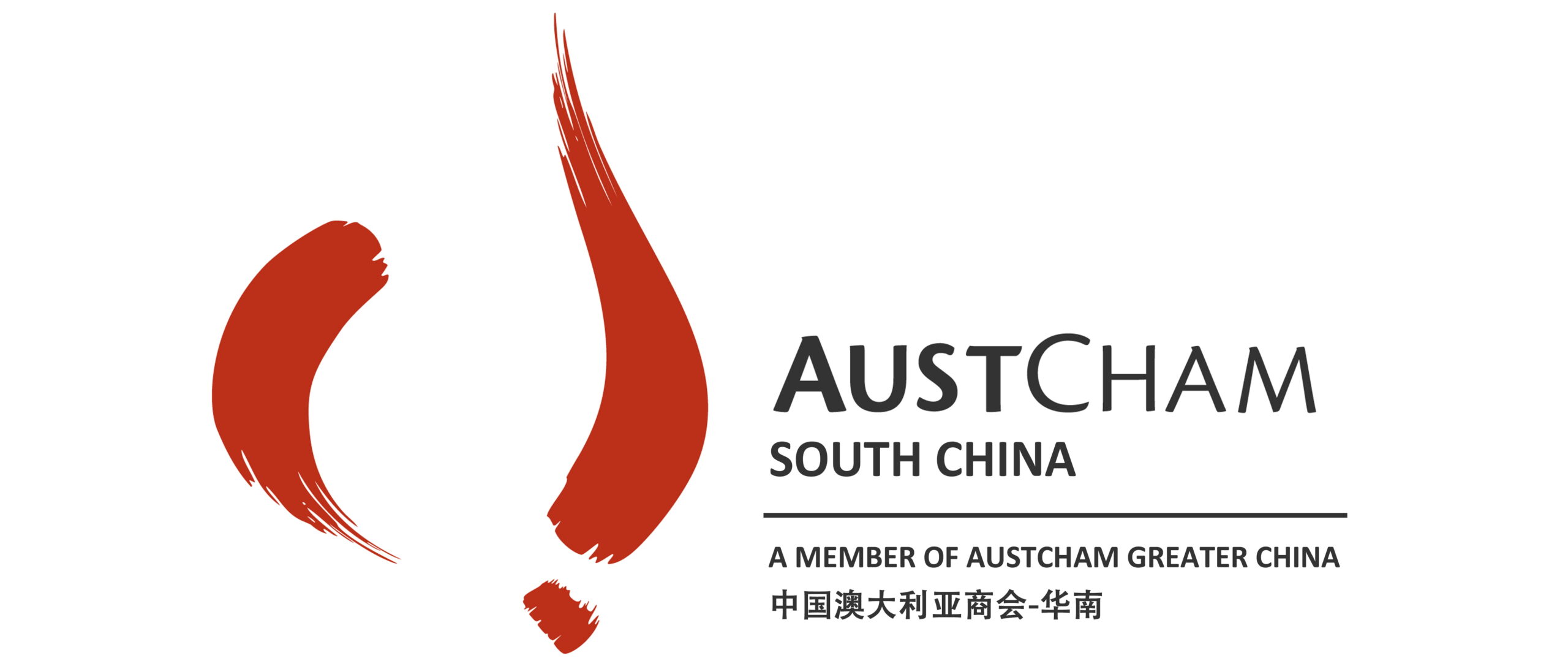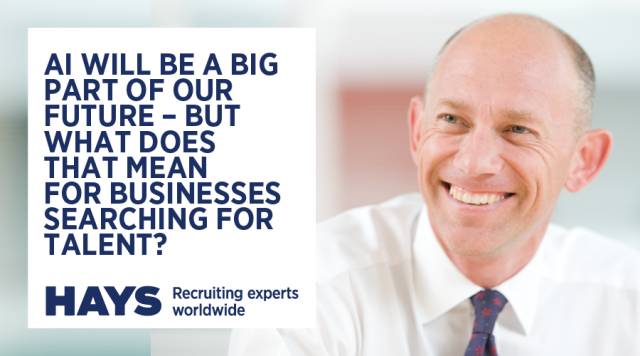by Alistair Cox@Hays
By 2020, it’s predicted that businesses across the world will spend a combined $47bn on artificial intelligence (AI), and it appears that every aspect of our lives – from shopping and leisure to work and personal finance – will be transformed as machines leverage data to provide us with tailored, personalised services at scale.
根据预测,到2020年,全球企业将在人工智能(AI)上投入470亿美元,似乎我们生活的方方面面 — 从购物、休闲到工作和个人理财,都将随着机器利用数据为我们大规模提供量身定制的个性化服务而经历变革。
With such a wide-ranging impact, it’s only natural to expect that AI will also revolutionise the way that organisations search for and acquire talent. Automated technology can analyse the mountains of data across organisations and the wider job market, translating it into easily digestible formats which will ultimately help humans make better decisions and spend their time on higher value, higher impact tasks.
鉴于其影响如此广泛,我们也能预计到AI将彻底改变组织选贤举能的方式。自动化技术可分析众多组织的海量数据与宏观就业市场,将其转化为易于理解的格式,最终帮助人们做出更好的决策,而人们节省出来的时间就能花在具备更高价值和更高影响力的任务上。
So what effect will this have on the way we source talent in the future? I see at least three areas of evolution:
那么,AI会对我们未来招聘人才的方式产生哪些影响?我能看到至少三个变革领域:
1. AI WILL BRING MORE EFFICIENT AND FAIRER CANDIDATE SCREENING
AI将让应聘者筛选变得更高效、更公平
One of AI’s main benefits is that it allows processes to be completed at a rate and scale that is simply unachievable by humans. Therefore, I expect two particular subsets of AI to become widely adopted over the next few years:
AI的主要益处之一,是让流程完成的速度与规模达到人类无法企及的水平。因此我认为,未来几年AI的两个分支将得到广泛应用。
- Natural Language Processing (NLP) – transforming text into structured, easily digestible data – it effectively lets a computer read language
自然语言处理(NLP)— 将文本转为结构化且易于理解的数据 — 有效实现计算机解读语言 - Natural Language Generation (NLG) – the reverse of NLP, transforming structured data into text – letting a computer write language
自然语言生成(NLG)— 自然语言处理的反向过程,将结构化数据转为文本 — 实现计算机生成语言
Both NLP and NLG have enormous potential in talent acquisition. The digital age has brought huge benefit to our industry. But it has also brought massive quantities of data that currently is handled largely manually. A simple job ad for example can elicit tens of thousands of responses, many of which may be wholly inappropriate applications, yet all must be screened in order to find the real stars. Straightforward yet often time-consuming tasks such as CV screening, drafting job descriptions and communication with candidates could take a matter of seconds using this new technology. That should free up the human experts to spend more time on the valuable role of working with the very best candidates on a personal basis – in effect putting the relationship back into the role, as that’s the crucial element required for success.
NLP与NLG都在人才招聘领域中展示出巨大潜力。数字时代让我们的行业受益匪浅。但随之而来的是现今大部分仍需人工处理的海量数据。例如,一个普通的工作招聘广告可能会收到数以万计的回应,其中许多申请人可能完全不适合该职位,但为了找到出色人选,所有的申请都要挨个筛查。筛选简历、起草职位描述以及与候选人沟通这类简单却耗时的工作,利用AI技术只需几秒钟就能完成。这样一来,人力专家就能腾出更多时间与最优秀的候选人进行单独交流 — 这实际上让招聘变得更加人性化,而这正是成功所需的关键因素。
Here at Hays, we’re already utilising NLG AI in the candidate screening process with an external expert organisation in this area, and the early signs are that it works. This platform has certainly accelerated the shortlisting process for us, and it also enables our recruitment consultants to concentrate on assessing the individual candidates outlined by the technology to be the best fit for the role in hand, rather than pouring over a wider pool of hundreds of thousands who may not be suitable. Our consultants are freed up to concentrate on building relationships with their clients and candidates – something that definitely can’t be done via AI.
瀚纳仕(Hays)已开始委托业内第三方专家机构使用AI自然语言生成技术,协助我们的候选人筛选流程,前期成果证明此策略卓有成效。此平台无疑加快了我们的甄选过程,也使我们的招聘顾问能集中精力、评估AI技术筛选出跟某特定职位最匹配的候选人,而不是把精力倾注在成千上万匹配度不高的人选上。我们的招聘顾问就能把精力放在与客户及候选人建立紧密关系这方面,这一点则是AI绝对无法做到的。
There’s a lot of emphasis today on eliminating bias in the recruitment process. I welcome that, but it is scientifically proven that unconscious bias can still exist even when great efforts are made to eliminate the more visible routes to bias. It’s interesting to see how, as well as increasing efficiency, automating sections of the screening phase can also lead to a decrease in subconscious hiring bias. After all, if the AI system is instructed to compile a shortlist by focusing solely on data around a candidate’s role suitability, it will by definition ignore demographic information such as age, race, and sex. There are pitfalls to beware of though, and it would be wrong to assume AI is inherently fairer. It’s equally possible for machine learning to automate an existing bias, and the “black box” nature of many AI techniques could mean you’re unaware of this even happening. For example, if the historical data used to train an AI screening algorithm had an inherent age bias in it, removing age data alone from the input files might not fix the problem as there are cases where AI can infer age based on first names and their popularity over time. As with any new technology, there’s a lot more to it once you start to get involved and develop it and beware the unintended consequences. Never forget that AI is only as good as the data you feed it, and to compile your ideal shortlist of candidates, you’ll need to provide comprehensive criteria on which qualifications, previous experience and specific skills would appeal to you.
当今时代,消除招聘过程中的偏见是大众十分注重的问题。我对此表示支持,但科学证明,即使人们力图消除明显形式的偏见,无意识偏见仍然存在。有趣的是,除提高效率之外,筛选阶段的部分自动化也可抑制招聘中的潜意识偏见。毕竟,若AI系统接受的指示是根据候选人与职位的匹配度数据来产生备选名单,那么系统就会自动忽略掉年龄、种族和性别等族群信息。不过我们还是要注意其中的陷阱,不能假设AI天生就更公平。机器学习功能同样可自动生成现有的偏见,许多AI技术的“黑匣子”性质可能意味着人类甚至对此毫无察觉。例如,如果用于训练AI筛选算法的历史数据已自带年龄偏见,从输入文件中移除年龄数据可能解决不了这个漏洞,因为历史上已有AI通过候选人名字与受欢迎度逐渐推断出年龄的先例。跟所有其他新技术一样,一旦我们开始利用开发AI,所涉及到的学问是无穷无尽的,因此要保持对意外后果的警惕。永远不要忘记,你输入的数据质量决定了AI的水平,为遴选出最理想的候选人,你需要给AI提供一套标准,让它了解你在学历资质、过往经验与具体技能方面的诉求。
2. AI WILL ENSURE A BETTER CANDIDATE FIT
AI将确保锁定匹配度更高的候选人
AI could also enable businesses to emphasise candidate fit like never before, which should ultimately result in more successful, long-lasting hires. After all, we see that the number one cause for an unsatisfactory hire is a lack of cultural fit between employee and organisation.
AI也可让企业能够比以往更关注候选人匹配度,最终带来更成功、更持久的聘用结果。毕竟众所周知,导致聘用不满意的头号原因是员工与组织之间缺乏文化上的匹配度。
This is already happening to a certain extent with skills – online job boards increasingly use algorithms to match their community of candidates to available roles. For example, a LinkedIn job posting will rank candidates by matching the information listed on their profiles to those in the job description. However, as AI (and the data collected by businesses) becomes more sophisticated, we can expect to see these algorithms become more complex and take preferences and fit into account, not just technical capability to fill a role.
招聘市场上使用AI计算匹配度已不是新鲜事 — 在线求职平台越来越多地使用算法来进行候选者群体与开放职位之间的匹配。比如,领英职位招聘会通过匹配候选人主页信息与职位描述信息的方式来给他们排序。然而,随着AI(以及企业收集的数据)愈加精益复杂,这些算法也将朝着更复杂的方向发展,算法会将招聘偏好与匹配度考虑在内,而不仅仅只看技术上的能力。
Individual’s attitudes to benefits, company culture and salary preferences amongst other aspects can be assessed through survey metrics. Machines can scour the jobs market and process answers via an algorithm to provide businesses with a shortlist of candidates that match their organisation’s persona. Candidates themselves will also feel the effects, and you can expect vastly more accurate job recommendations and a more tailored outreach from prospective employers, honed even more closely to your preferences.
求职者对福利待遇、企业文化和薪酬偏好等方面的态度可以通过调查指标进行评估。机器可以通过算法来执行就业市场搜索和结果处理,为企业提供与组织人格相匹配的候选人名单。候选人也能亲身感受到AI匹配度计算带来的效应,求职者可收到更准确的职位推荐,以及未来雇主更有针对性的联系,这些定制信息均更加符合个人偏好。
However, the human element will still be required, probably even more so, since it remains incredibly difficult for any machine to analyse the soft skills that remain so crucial to modern business. I’m yet to see an algorithm that can read things like humour, temperament or enthusiasm as effectively as a person can. And let’s not forget that ultimately human oversight is still required to compile criteria – I certainly wouldn’t want a machine deciding the persona of my business, and I don’t think it would do a particularly good job yet.
然而,人类仍然是不可或缺的因素,且重要性可能还甚于从前,因为任何机器都难以分析对现代企业至关重要的软技能。我至今还没发现可以像人们一样有效地理解幽默、气质或热情的算法。请切记,筛选标准最终仍需人类的监督 — 我绝不想要机器来决定我企业的人格,我也不认为现阶段机器在这方面做得足够好。
3. AI WILL HELP SAFEGUARD FUTURE TALENT PIPELINES
AI将保障未来人才管道
Aside from helping businesses hire the right candidates today, I believe AI will play a significant role in enabling organisations to retain and develop talent for the future.
除了帮助现在的企业招聘合适候选人之外,我相信AI也会在组织留住和发展未来人才方面发挥重要作用。
We’ve seen the retail sector harness AI to prompt and nudge consumers with more personalised and interactive shopping experiences. I expect that in the coming years employers will follow suit, keeping staff engaged on a more specific, one-to-one basis. Again, the overall use for AI here is to supplement, not supplant, human management – an automated system could prompt a manager to catch up one-to-one with an employee who values frequent mini-reviews, or remind them that there is one member of staff who hasn’t yet been included in an internal reward programme. These are very basic use cases. As algorithms get more sophisticated, employers may, for example, find the machines telling them when and where they are likely to lose valuable people so that humans can intervene before it’s too late.
我们已经看到, 零售行业正利用AI创造更具个性化和互动性的购物体验,促使消费者购物。我预计未来几年,众多雇主也会追随其步伐,在更具体化、个人化的基础上保持员工的参与度。再次重申,AI在此领域的整体应用是为了补充、而不是替代人类的管理 — 自动化系统可能会促进经理与看重小型回顾会议的员工进行一对一交流,或提醒经理哪位员工尚未得到内部奖励项目。以上都是十分基础的用例。随着算法变得越来越复杂,机器可能会告诉雇主何时何处可能会出现人才流失等信息,以便人类在为时已晚之前进行干预。
One exciting prospect is to utilise AI to supplement proactive human planning. An organisation’s talent flow is essentially another data spread that a computer can analyse to spot upcoming trends, either assessing when future revenue growth will require additional staff, or analysing calendar patterns to identify which time of year employees are most likely to depart, for example. I believe that this will become integral for larger businesses, who will then work with hiring managers and talent acquisition leaders to plan proactive hiring initiatives, rather than spending so much time on reactive, ‘fire fighting’ hiring.
一个激动人心的前景便是用AI补充人类的前瞻规划。组织的人才流动本质上是另一种数据传播,计算机可以对此执行分析,发现未来趋势,评估未来营收增长需要的额外员工,或分析历年模式,识别一年中最可能出现员工离职的时间段。我相信这将成为大型企业必不可少的策略,这些企业将与招聘经理和人才招募主管一起策划前瞻性的招聘计划,而不是浪费大量时间进行被动性的“救火”招聘。
END
As AI’s business case becomes more widely recognised, I expect that talent acquisition will begin to adapt very quickly indeed. Not only should this result in a far more efficient recruitment process, it will also provide talent managers with more time to focus on higher value tasks – and opportunities to leverage ever-important human nuance, which I believe can never be successfully emulated by AI. However, expect a deluge of new businesses and models claiming that they can overnight transform your fortunes as that is usually the bandwagon that starts rolling once a new idea starts to gain traction. It will not be easy to sift the real jewels from the rest of the noise and recruiters could well find themselves overwhelmed with choice and uncertainty on which route to take. Certainly in my own business we spend a lot of time looking for the ideas that will really make a difference for our clients and candidates, and that’s probably less than 10% of all the proposals that come across our desk.
随着AI在商业上获得日益广泛的认可,我预计人才招募领域也会很快开始适应这种趋势。这不仅会促进更加高效的招聘过程,还会让招聘经理有更多的时间专注于更具价值的任务,抓住更多利用人类细微特征的机会,这一点我相信AI不可能成功仿效。然而,未来会有大批新企业和新商业模式声称自己可以改变你的命运,因为每次一有新概念发力,这样的跟风场景通常都会出现。从沙子中淘出真金并不容易,招聘者很可能会因选择太多以及不确定的可靠性而感到困扰。在瀚纳什,我们投入大量时间寻找真正对客户与候选人有所帮助的想法,而这类想法只占到所有提案的10%。
However I also firmly believe that people, not machines, will continue to play the dominant role in hiring and staff engagement. We will need to set the criteria, we’ll need to bring that magic of human nuance to the screening and interview phase, and we need to build the person-to-person relationship which is all that ultimately matters when a candidate holds their pen over a contract. Today people do business with people and I hope that never changes. Despite the excitement and fears around the rise of AI, talent management largely remains a contact sport, where gut feeling, grounded in thousands of tiny facets of human experience which are never captured as data, plays just as strong a role as hard data.
但我也坚信,未来将继续在招聘和员工敬业度中发挥主导作用的是人类而不是机器。我们需要制定标准,我们需要将人类特有的细微差别应用到筛选和面试阶段,我们还需要建立个人对个人的关系,这是候选人落笔签合同时最重要的考量。当今时代,商业仍然是人与人之间的往来,这一点我希望永不改变。尽管AI的崛起让人们兴奋又恐惧,人才管理大部分仍是一种接触式活动,其中,基于数千个人类经验微小方面、从未被捕获为数据的直觉,与硬数据扮演同样强大的角色。




